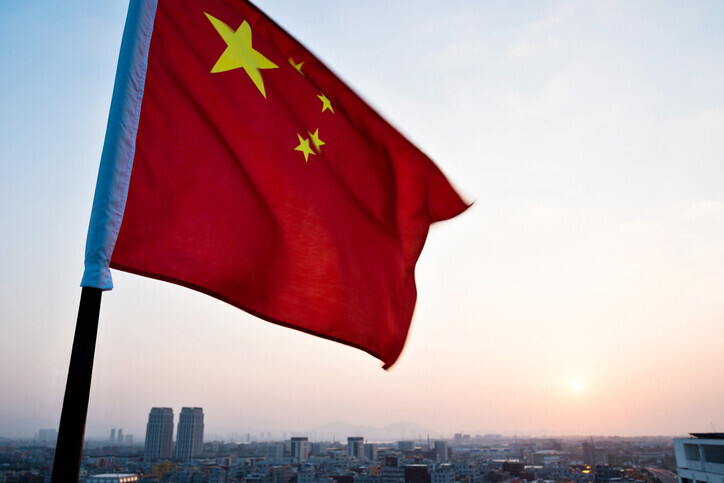hankyoreh
Links to other country sites 다른 나라 사이트 링크
Getting to the root of S. Koreans’ newfound antipathy toward China

The average person in the world sees both the US and China as destabilizing forces in the international order.
According to a Gallup survey of 42,060 adults in 45 countries conducted between October and December 2021, 39% of respondents said the US was “stabilizing” the international order while 41% saw it as a destabilizing force.
Regarding China, 29% of respondents said it was “stabilizing” in the international arena while 47% said the opposite.
Although the percentage points differ, the world’s two most powerful countries have become the cause of instability for many people around the world.
So, what do Koreans think? According to another Gallup survey, this time focused only on South Korea, 57% of South Koreans saw the US as a stabilizing force while 34% saw it as more destabilizing.
On the other hand, only 4% of Koreans said China was a force for stability while a whopping 88% believed that China was a destabilizing force.
Unlike the average global population, it is very clear to see that South Koreans equate the US with stability and see China as destabilizing. In fact, the level of antipathy South Koreans hold toward China is significant.
However, South Koreans have not always been so anti-China.
According to a July 2014 Gallup survey measuring the favorability of leaders in neighboring countries around the Korean Peninsula, 59% of South Koreans said they liked Chinese leader Xi Jinping while only 15% saw him unfavorably.
These figures changed significantly, however, in the most recent survey, which was conducted in mid-November of 2021. According to that survey, only 8% of South Koreans saw Xi in a favorable light.
The biggest reason for this antipathy is connected with the 2016 decision to deploy a Terminal High Altitude Area Defense, or THAAD, battery to South Korea and the resulting economic retaliation by China.
But it’s not just about THAAD. Reasons for disliking China are various, according to several polls. Other reasons include yellow and fine dust that many believe come from China, the outbreak and response of COVID-19, and Chinese legal measures that restrict for-profit activities by Korean cultural entities in China.
In a more structural sense, South Koreans also dislike China due to the burden of its overwhelmingly large economic power, the pressure to choose between China and the US amidst their hegemonic rivalry, and China’s oppressive behavior toward Hong Kong and Taiwan.
In South Korea, there is much heated debate over the strong anti-China and pro-US sentiment among the citizenry. The perception that the origin of anti-China sentiment is a direct result of “Western-centrism” collides with the wary attitude concerning the danger of the “return of the Chinese Empire.”
In his book “The Birth of Jjangkkeism,” Kim Hee-gyeo uses the concept of “jjangkkeism,” which he says is South Korea’s own “unique” system of seeing China through the lens of neo-colonialism and racism, to show that this kind of anti-China sentiment has become a “structurally designed ideology” in Korea today.
On the other hand, Han Cheong-won’s book “The China Shock and Korea’s Choice” paints China as a major threat and risk to South Korea.
Regarding this, Ha Nam-suk, a professor of Chinese language and culture at the University of Seoul, says that “from a long-term perspective, we should continue the internal study of China, but we mustn’t go in the direction of legitimizing the contradictory Chinese system.”
Ha also added that it is necessary to expand discussions that can “weaken China's hegemonic intentions,” which he said are “gradually being strengthened geopolitically.”
In other words, we have to break away from the pro-China/anti-China dichotomy and look more closely at the dynamics and diversity of China.
By Lee Je-hun, senior staff writer
Please direct questions or comments to [english@hani.co.kr]

Editorial・opinion
![[Column] Will Seoul’s ties with Moscow really recover on their own? [Column] Will Seoul’s ties with Moscow really recover on their own?](https://flexible.img.hani.co.kr/flexible/normal/500/300/imgdb/original/2024/0513/5917155871573919.jpg) [Column] Will Seoul’s ties with Moscow really recover on their own?
[Column] Will Seoul’s ties with Moscow really recover on their own?![[Column] Samsung’s ‘lost decade’ and Lee Jae-yong’s mismatched chopsticks [Column] Samsung’s ‘lost decade’ and Lee Jae-yong’s mismatched chopsticks](https://flexible.img.hani.co.kr/flexible/normal/500/300/imgdb/original/2024/0512/3017154788490114.jpg) [Column] Samsung’s ‘lost decade’ and Lee Jae-yong’s mismatched chopsticks
[Column] Samsung’s ‘lost decade’ and Lee Jae-yong’s mismatched chopsticks- [Correspondent’s column] The real reason the US is worried about Chinese ‘overcapacity’
- [Editorial] Yoon’s gesture at communication only highlights his reluctance to change
- [Editorial] Perilous stakes of Trump’s rhetoric around US troop pullout from Korea
- [Guest essay] Preventing Korean Peninsula from becoming front line of new cold war
- [Column] The state is back — but is it in business?
- [Column] Life on our Trisolaris
- [Editorial] Penalties for airing allegations against Korea’s first lady endanger free press
- [Editorial] Yoon must halt procurement of SM-3 interceptor missiles
Most viewed articles
- 1Ado over Line stokes anti-Japanese sentiment in Korea, discontent among Naver employees
- 2[Column] Samsung’s ‘lost decade’ and Lee Jae-yong’s mismatched chopsticks
- 3Korean opposition decries Line affair as price of Yoon’s ‘degrading’ diplomacy toward Japan
- 4US has always pulled troops from Korea unilaterally — is Yoon prepared for it to happen again?
- 5Korean auto industry on edge after US hints at ban on Chinese tech in connected cars
- 6[Editorial] Yoon’s gesture at communication only highlights his reluctance to change
- 7[Correspondent’s column] The real reason the US is worried about Chinese ‘overcapacity’
- 8[Column] Will Seoul’s ties with Moscow really recover on their own?
- 9[Photo] Korean students protest US complicity in Israel’s war outside US Embassy
- 101 in 3 S. Korean security experts support nuclear armament, CSIS finds